Single Replacement Reactions
A single replacement reaction is a type of chemical reaction in which an element reacts with a compound and takes the place of another element in that compound. This type of reaction can be represented by the general equation:
A + BC → AC + B
Key Concepts
- Reactants: The elements or compounds that are present at the beginning of the reaction.
- Products: The elements or compounds that are formed as a result of the reaction.
- Activity Series: A list of metals arranged in order of their reactivity. This is used to predict whether a single replacement reaction will occur.
- Reactivity: The tendency of an element to undergo chemical reactions.
Study Guide
- What is a single replacement reaction?
- How can you determine if a single replacement reaction will occur?
- Can nonmetals participate in single replacement reactions?
- What are the products of a single replacement reaction?
A single replacement reaction is a type of chemical reaction in which an element reacts with a compound and takes the place of another element in that compound.
You can use the activity series of metals to determine if a single replacement reaction will occur. If the element doing the replacing is higher in the activity series than the element being replaced, the reaction will occur.
Yes, nonmetals can also participate in single replacement reactions, especially in reactions involving halogens (Group 17 elements).
The products of a single replacement reaction are a new compound and a different element than the one present in the original reactants.
[Single Replacement Reactions] Related Worksheets and Study Guides:
.◂Science Worksheets and Study Guides Fifth Grade. Cycles of life and Biomes
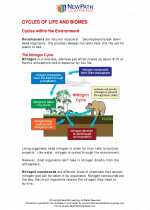
 Worksheet/Answer key
Worksheet/Answer key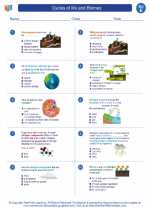
 Worksheet/Answer key
Worksheet/Answer key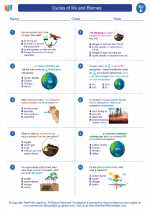
 Worksheet/Answer key
Worksheet/Answer key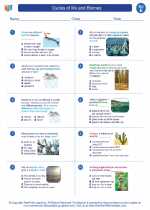
 Worksheet/Answer key
Worksheet/Answer key
 Vocabulary/Answer key
Vocabulary/Answer key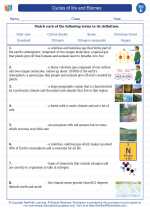
 Vocabulary/Answer key
Vocabulary/Answer key
